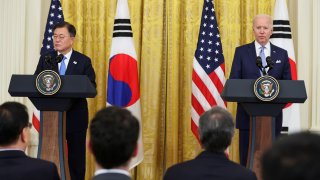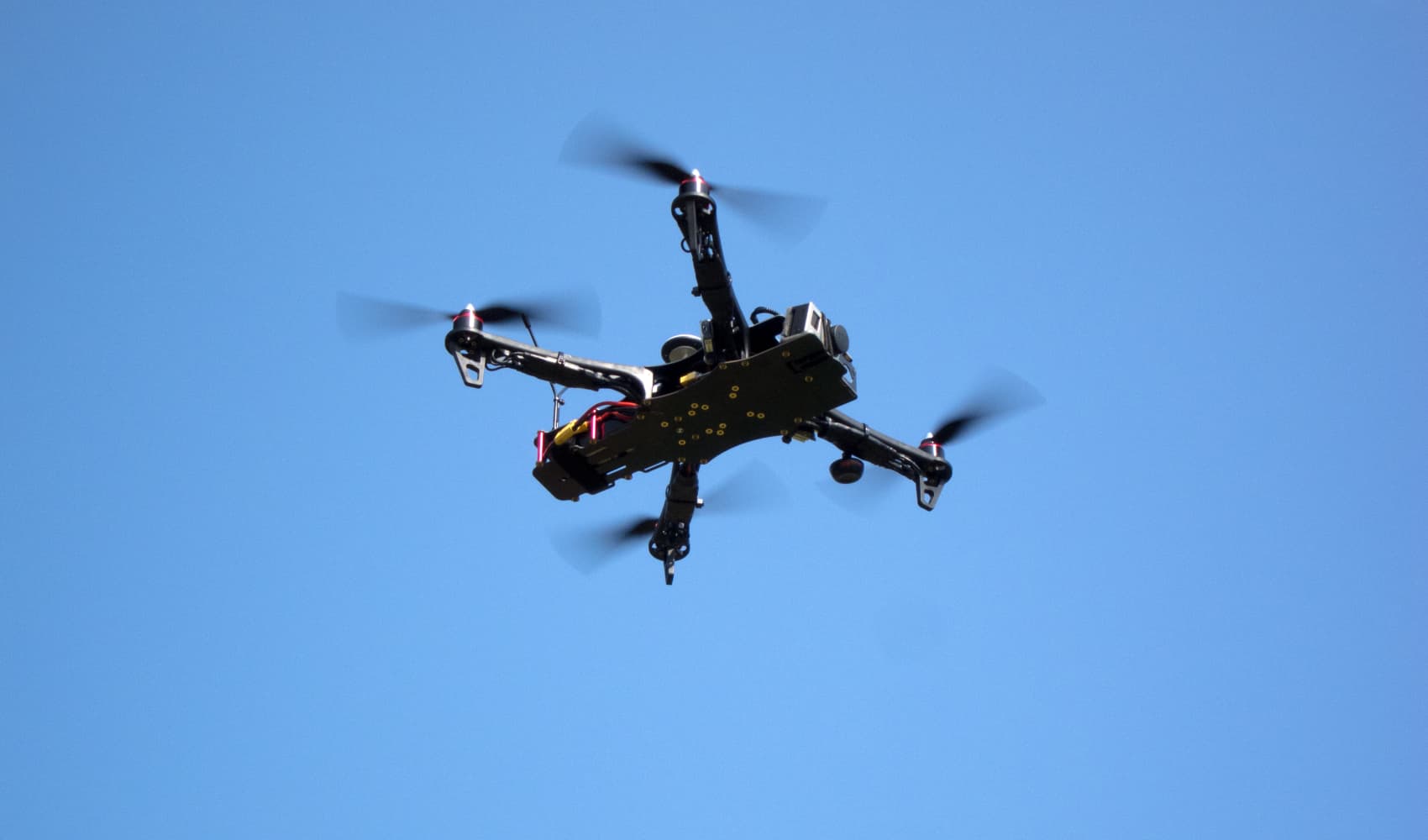
- President Joe Biden on Friday rejected his predecessor's approach to North Korea and its nuclear program.
- Biden used the example of former President Donald Trump's high-profile meetings with Kim Jong-Un to illustrate what he, as president, would never do.
- Biden also announced that the United States would provide 550,000 South Korean service members with Covid-19 vaccines.
WASHINGTON — President Joe Biden on Friday rejected his predecessor's approach to North Korea and said his goal as president was to achieve a "total denuclearization" of the Korean Peninsula.
Speaking at a joint press conference with South Korean President Moon Jae-in, Biden used the example of former President Donald Trump's high-profile meetings with North Korean leader Kim Jong-Un to illustrate what he, Biden, would never do.
"If there was a commitment on which we met, then I would meet with [Kim]," said Biden. "And the commitment has to be that there is discussion about his nuclear arsenal."
Get top local stories in Southern California delivered to you every morning. >Sign up for NBC LA's News Headlines newsletter.
"What I would not do is what has been done in the recent past," the president said. "I would not give him all he's looking for, international recognition as legitimate, and give him what allowed him to move in a direction of appearing to be more serious about what he wasn't at all serious about."
Trump held three high-profile meetings with Kim, one in Singapore in June of 2018, another in Hanoi the following February, and the last one in June of 2019. During their third meeting, Trump took several steps onto North Korean soil, becoming the first American president to do so.
Money Report
All three meetings between Trump and Kim were ostensibly focused on denuclearization. Yet rather than reduce his stockpile, Kim doubled his country's arsenal of nuclear weapons during the four years Trump was president.
Biden and Moon pledged to work together to continue the effort to denuclearize North Korea.
As part of this process, Biden announced Friday that Ambassador Sung Kim will serve as the U.S. special envoy for North Korea.
Sung Kim is a career diplomat and a former ambassador to South Korea. He was recently nominated to be the assistant secretary of State for East Asian and Pacific Affairs.
Another important topic during Biden and Moon's meeting on Friday was their countries' ongoing response to Covid-19.
South Korea is currently experiencing a shortage of coronavirus vaccines. Approximately 7% of South Koreans have received at least one shot of the vaccine, according to data by the Korea Disease Control and Prevention Agency.
By contrast, more than 48% of Americans have received one shot, according to the U.S. Centers for Disease Control and Prevention.
During the press conference, Moon and Biden announced that the United States would provide 550,000 Korean service members with Covid-19 vaccines.
Biden and Moon's press conference followed an afternoon of meetings and ceremonies, including the awarding of the Presidential Medal of Honor to a U.S. veteran of the Korean War.
The visit was Biden's second time as president hosting a foreign leader at the White House. And it offered the president an opportunity to showcase that, in his words, "America is back."
After four years of Trump's isolationist approach to foreign policy, Moon welcomed the new tone.
"The world is welcoming America's return and keeping their hopes high for America's leadership more than ever before," Moon said Friday.
But foreign policy is not where Biden has devoted the lion's share of his attention as president.
Aides to the president say he is chiefly focused on enacting his domestic agenda: two massive proposals, to rebuild the nation's infrastructure and to fund a range of family and social services.
As the past week has shown, however, events on the ground can quickly force any White House to shift its attention overseas.
Most recently, renewed fighting between Israel and the Islamic militant group Hamas in Gaza consumed much of the attention of the world during the past 11 days.
Biden said Friday that a two-state solution between Israel and the Palestinian Authority is "the only answer."
And despite pressure from some Democrats to take a harder line on Israel's airstrikes, Biden emphasized that nothing in his approach to the longtime U.S. ally has changed.
"There is no shift in my commitment to the security of Israel. Period."
He also praised Egypt's president, Abdel Al-Sisi, for doing what Biden said was a "commendable job" securing the cooperation of Hamas on a cease-fire that began early Friday morning.






